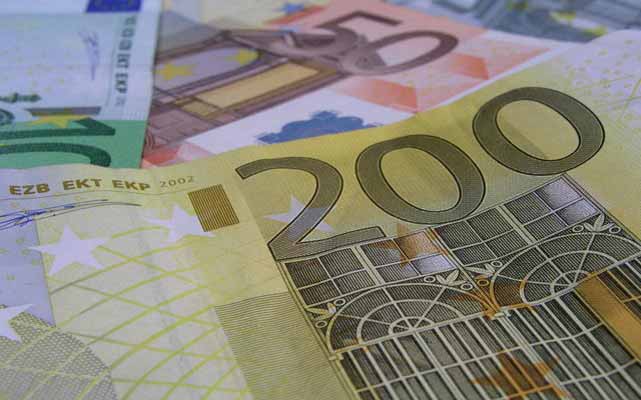British Pound to Euro Forecast: EUR Weakens on French Political Turmoil
- Written by
David Woodsmith

A fresh wave of political uncertainty in France rattled European markets and sent the Euro exchange rates lower, allowing GBP/EUR to climb to two-week highs near 1.1520 as investors assessed the fallout for Euro stability and fiscal policy.
The Euro was already on the defensive in early Europe on Monday and retreated further following the shock resignation of French Prime Minister Lecornu.
The Pound to Euro (GBP/EUR) exchange rate jumped to 2-week highs just above 1.1520 before trading around 1.1510.
In the short term, GBP/EUR needs to hold above 1.15 to maintain more positive sentiment.
In a shock announcement, French Prime Minister Lecornu announced his resignation on Monday.
French bonds came under renewed pressure while the CAC 40 index dipped 1.5%.
Lecornu had only been in office for 26 days following the resignation of previous Prime Minister Bayrou.
There had been strong criticism of his cabinet appointments and inevitably, there was persistent opposition to budget-tightening measures.
In particular, the appointment of Macron loyalist Lescure as Finance Minister triggered strong criticism from opposition parties.
There will be further fears surrounding the French debt dynamics with a fresh focus on French bonds.
The French 10-year bond yield increased to 3.58% from 3.51% ahead of the announcement.
The spread over German yields widened to 87 basis points and the most since January.
Renewed selling pressure on bonds would trigger fresh concerns surrounding Euro stability.
MUFG commented; “For the market, the worst case would be if he tries to break that deadlock by calling snap parliamentary elections, that would extend the uncertainty in the near term and likely trigger another leg lower for the euro.”
Danske analyst Kirstine Kundby-Nielsen added; “There doesn’t seem to be a willingness to get lower government deficits and consolidate French public finances and investors want a premium for that.”
SocGen’s Chief FX Strategist Kit Juckes, however, played down the impact; "This is ongoing issue – France – as far as the euro is concerned. France can have some impact on the euro, but the overall impact is much less than it was."
MUFG is still bearish on the Pound due to domestic fundamentals, especially as it sees risks surrounding both the fiscal and monetary policy outlook.
On fiscal policy the focus will remain on the November budget with expectations of further tax hikes.
The bank also considers that markets are underplaying risks to interest rates.
It noted; “Even if the BoE leaves rates on hold in November as currently expected, we doubt it will prevent the GBP from weakening further against the EUR. We have not completely ruled out a rate cut as soon as in December at which point there could be more evidence of inflation slowing in the UK and the BoE will have seen the government’s updated fiscal plans.”
STORY LINK British Pound to Euro Forecast: EUR Weakens on French Political Turmoil

A fresh wave of political uncertainty in France rattled European markets and sent the Euro exchange rates lower, allowing GBP/EUR to climb to two-week highs near 1.1520 as investors assessed the fallout for Euro stability and fiscal policy.
GBP/EUR Forecasts: Jump to 2-Week Highs
The Euro was already on the defensive in early Europe on Monday and retreated further following the shock resignation of French Prime Minister Lecornu.
The Pound to Euro (GBP/EUR) exchange rate jumped to 2-week highs just above 1.1520 before trading around 1.1510.
In the short term, GBP/EUR needs to hold above 1.15 to maintain more positive sentiment.
In a shock announcement, French Prime Minister Lecornu announced his resignation on Monday.
French bonds came under renewed pressure while the CAC 40 index dipped 1.5%.
Save on Your GBP/EUR Transfer
Get better rates and lower fees on your next international money transfer. Compare TorFX with top UK banks in seconds and see how much you could save.
There had been strong criticism of his cabinet appointments and inevitably, there was persistent opposition to budget-tightening measures.
In particular, the appointment of Macron loyalist Lescure as Finance Minister triggered strong criticism from opposition parties.
There will be further fears surrounding the French debt dynamics with a fresh focus on French bonds.
The French 10-year bond yield increased to 3.58% from 3.51% ahead of the announcement.
The spread over German yields widened to 87 basis points and the most since January.
Renewed selling pressure on bonds would trigger fresh concerns surrounding Euro stability.
MUFG commented; “For the market, the worst case would be if he tries to break that deadlock by calling snap parliamentary elections, that would extend the uncertainty in the near term and likely trigger another leg lower for the euro.”
Danske analyst Kirstine Kundby-Nielsen added; “There doesn’t seem to be a willingness to get lower government deficits and consolidate French public finances and investors want a premium for that.”
SocGen’s Chief FX Strategist Kit Juckes, however, played down the impact; "This is ongoing issue – France – as far as the euro is concerned. France can have some impact on the euro, but the overall impact is much less than it was."
MUFG is still bearish on the Pound due to domestic fundamentals, especially as it sees risks surrounding both the fiscal and monetary policy outlook.
On fiscal policy the focus will remain on the November budget with expectations of further tax hikes.
The bank also considers that markets are underplaying risks to interest rates.
It noted; “Even if the BoE leaves rates on hold in November as currently expected, we doubt it will prevent the GBP from weakening further against the EUR. We have not completely ruled out a rate cut as soon as in December at which point there could be more evidence of inflation slowing in the UK and the BoE will have seen the government’s updated fiscal plans.”
International Money Transfer? Ask our resident FX expert a money transfer question or try John's new, free, no-obligation personal service! ,where he helps every step of the way, ensuring you get the best exchange rates on your currency requirements.
TAGS: Pound Euro Forecasts
Comments are currrently disabled
Related Stories:
- Pound to Euro: Consensus Bank Forecasts Point to GBP/EUR Near 1.13 - November 22, 2025
- Pound-to-Euro Forecast: Budget Nerves Limit GBP Support - November 21, 2025
- Pound to Euro Gains as EUR Pressured by Trade Dispute - November 20, 2025
- Pound to Euro Forecast: GBP to Stay Fragile Ahead of Budget - November 20, 2025
- Pound-to-Euro Slips as UK Inflation Cools - November 19, 2025
- Pound to Euro FX Forecast: GBP/EUR Stabilises, But Downside Risks to Continue - November 19, 2025
- Pound to Euro (GBP/EUR) Flat as Markets Brace for UK Inflation Data - November 18, 2025
- Pound-to-Euro Forecast: GBP/EUR Fragile Despite Modest Rebound - November 18, 2025
- Pound to Euro Higher Ahead of UK Inflation - November 17, 2025
Latest News:
- British Pound to Dollar Forecast: GBP/USD Risks Tilted to Upside - November 22, 2025
- Pound to Euro: Consensus Bank Forecasts Point to GBP/EUR Near 1.13 - November 22, 2025
- Pound-to-Dollar Forecast: Mixed US Labour Data Keeps USD Soft, GBP Stabilises - November 21, 2025
- Pound-to-Euro Forecast: Budget Nerves Limit GBP Support - November 21, 2025
- GBP to USD Forecast: Pound Sterling Upside to be Limited Ahead of UK Budget - November 20, 2025
- Pound to Euro Gains as EUR Pressured by Trade Dispute - November 20, 2025
- British Pound to Dollar Forecast: GBP Holds 1.30 as Tech Jitters, CPI Shape Outlook - November 20, 2025
- Pound to Euro Forecast: GBP to Stay Fragile Ahead of Budget - November 20, 2025
- GBP/USD Forecast: Pound Sterling Risks $1.30 as Markets Turn Cautious - November 19, 2025
- Pound-to-Euro Slips as UK Inflation Cools - November 19, 2025









